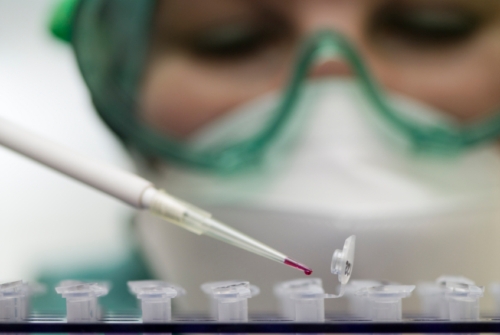 For three days, scientists, policymakers, and ethicists from 20 countries debated the safety, efficacy, and ethics of a new gene editing toolkit that has the potential to radically change the field of medicine. These new tools, collectively called CRISPR, has the potential to cure genetic diseases; but the toolkit also raises concerns about safety and the idea of designer humans.
For three days, scientists, policymakers, and ethicists from 20 countries debated the safety, efficacy, and ethics of a new gene editing toolkit that has the potential to radically change the field of medicine. These new tools, collectively called CRISPR, has the potential to cure genetic diseases; but the toolkit also raises concerns about safety and the idea of designer humans.
Methods of editing genes are not new, but most suffer from some combination of being imprecise, expensive, or less than effective. CRISPR, which draws on bacteria for inspiration, is capable of unmatched precision, affordability, and effectiveness. Although any clinical use of CRISPR on patients is still years away, the International Summit on Human Gene Editing was convened to try and establish broader consensus on the treatment’s possible future.
Generally speaking, gene editing treatments takes one of two forms:
- The somatic (“in the body”) form of treatment involves selectively editing a patient’s cells in order to, for instance, combat sickle-cell anemia, HIV, or cancer.
- In the germline form of treatment, embryos or germline (sex) cells would be edited to preemptively cure diseases like Huntington’s.
There are clinical trials already being performed for the former type and earlier this year Chinese researchers attempted the latter.
Among the concerns debated at the summit were possible risks associated with creating inheritable genetic changes through germline editing, patient access in poorer nations should CRISPR treatments become mainstream; the possibility of “designer babies”, and oversight guidelines for clinical uses. In the end, the summit released its conclusions split across the following categories:
- Basic and preclinical research: It was agreed that more research into gene editing treatment is needed on methods and technologies used, potential risks and benefits, and better understanding of how gene editing affects human embryos and germline cells. Embryos or germline cells editing as part of research should not be used to create a pregnancy.
- Somatic clinical use: Gene editing can directly edit a body’s cells without risking inheritable changes. This could treat numerous diseases and improve targeted therapies. It was agreed that somatic treatments can be evaluated based on existing and developing regulations for both potential benefits and risks, such as inaccurate editing.
- Germline clinical use: Germline editing can create inheritable changes capable of both avoiding inherited diseases and possibly enhancing human abilities. It was agreed that it would be irresponsible to perform clinical germline edits unless safety and efficacy was better understood and that there was broader social consensus about how creating such types of full-body edits would be. The summit also noted that the many types of germline edits proposed are banned by many nations. The possibility of germline editing was deemed inadvisable overall but it was advised that the subject be revisited as science and society evolve.
- Need for an ongoing forum: The summit called upon the international community to strive to develop common practices and norms regarding gene editing in order to produce consistent regulations and to discourage unacceptable activities.
Sources for Today’s Article:
“No Designer Babies, but Gene Summit Calls for Cautious Research,” Fox News web site, December 4, 2015; http://www.foxnews.com/health/2015/12/04/no-designer-babies-but-gene-summit-calls-for-cautious-research.html.
“On Human Gene Editing: International Summit Statement,” The National Academies of Sciences, Engineering, and Medicine.” December 3, 2015; http://www8.nationalacademies.org/onpinews/newsitem.aspx?RecordID=12032015a.
“Gene Editing of Sperm and Eggs Clinically Irresponsible, Scientists Say,” CBC news web site, December 3, 2015; http://www.cbc.ca/news/health/crispr-summit-1.3349192.
